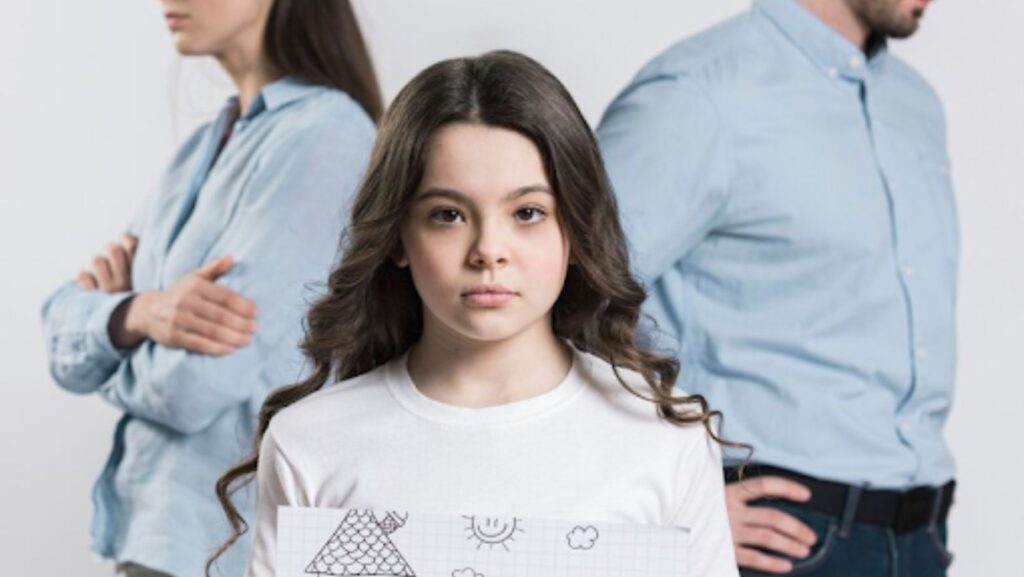Dealing with child custody can be one of the most challenging aspects of a divorce or separation. Understanding the different types of custody arrangements is necessary for parents seeking the best outcome for their child. Courts consider multiple factors when determining custody, including the child’s best interests, parental involvement, and the ability to co-parent effectively.
If you are going through a custody dispute, working with an experienced Chicago child custody lawyer can help you understand your rights and responsibilities. Here we’ll explain the different types of child custody, the factors courts consider, and how parents can navigate the process effectively.
What is Child Custody?
Child custody refers to the legal and practical relationship between a parent and a child after divorce or separation. It determines where the child lives, who makes major decisions regarding their upbringing, and how much time each parent spends with them.
Custody laws vary by state, and in Illinois, custody is legally referred to as “allocation of parental responsibilities” and “parenting time” rather than sole or joint custody. The court makes custody decisions based on the best interests of the child, considering factors like parental stability, living conditions, and the ability to provide for the child’s emotional and physical needs.
Legal Custody vs. Physical Custody
Child custody is divided into two main categories: legal custody and physical custody.
Legal Custody
Legal custody refers to the right of a parent to make major decisions about their child’s life, including:
- Education (where the child attends school)
- Healthcare (medical treatments and doctor visits)
- Religious upbringing
- Extracurricular activities
Parents who share joint legal custody must communicate and make decisions together. If one parent has sole legal custody, they have the exclusive right to make these decisions without consulting the other parent.
Physical Custody
Physical custody refers to where the child primarily lives. There are two main types:
- Sole Physical Custody – The child lives with one parent, while the other may have visitation rights.
- Joint Physical Custody – The child spends significant time with both parents, although it may not always be a 50/50 split.
In Illinois, courts prefer joint parenting time arrangements whenever possible, provided they serve the child’s best interests.
Sole Custody vs. Joint Custody
Custody arrangements can also be classified as sole custody or joint custody based on the level of parental involvement.
Sole Custody
In sole custody arrangements, one parent has both sole legal and sole physical custody, meaning they make all major decisions and the child primarily resides with them. The other parent may have visitation rights, but they do not have decision-making authority.
When Courts Award Sole Custody:
- One parent is deemed unfit due to substance abuse, neglect, or domestic violence.
- The other parent is absent or uninvolved in the child’s life.
- The parents have extreme conflict and cannot co-parent effectively.
Joint Custody
Joint custody allows both parents to share responsibilities. In Illinois, joint custody is referred to as shared parental responsibilities and shared parenting time.
Types of joint custody:
- Joint Legal Custody – Both parents collaborate on major decisions.
- Joint Physical Custody – The child spends significant time with both parents, though not necessarily equal.
Pros of Joint Custody:
- The child maintains strong relationships with both parents.
- Parents share financial and emotional responsibilities.
- Stability and continuity in the child’s life.
Challenges of Joint Custody:
- Requires strong communication and cooperation between parents.
- Can be difficult to manage scheduling and transitions.
Working with experienced divorce lawyers in Chicago, IL can help parents create a joint custody arrangement that benefits both the child and the parents.
How Courts Decide Custody Arrangements in Illinois
The court’s primary concern is the best interests of the child. Factors that influence custody decisions include:
- The child’s needs, including education and healthcare
- The relationship between the child and each parent
- Each parent’s ability to provide a stable home
- The mental and physical health of each parent
- Any history of domestic violence or substance abuse
- The willingness of each parent to support a relationship with the other parent
If parents cannot agree on a custody arrangement, the court may order mediation to help them reach a resolution. If mediation fails, the judge will make the final decision.
Modifying a Custody Agreement
Child custody arrangements are not always permanent. Parents can request a modification if circumstances change significantly. Common reasons for custody modifications include:
- Relocation – One parent moves to another city or state.
- Change in Parental Fitness – If one parent becomes unfit due to substance abuse or legal issues.
- Changes in the Child’s Needs – As children grow, their needs may change, requiring a new custody arrangement.
If you need to modify a custody agreement, consulting a Chicago child custody lawyer can help you navigate the legal process.
Ensuring the Great Outcome for Your Child’s Well-Being
Understanding the different types of child custody—legal vs. physical, sole vs. joint—can help parents make informed decisions that prioritize their child’s well-being. Illinois courts focus on creating parenting plans that support the child’s best interests while encouraging cooperation between parents.
If you are facing a custody battle or need to modify an existing agreement, seeking legal guidance is essential. Experienced divorce lawyers in Chicago, IL can help you navigate custody laws, protect your parental rights, and ensure the best possible outcome for your child.
For experienced legal assistance, consult a Chicago family law lawyer to discuss your case today.
